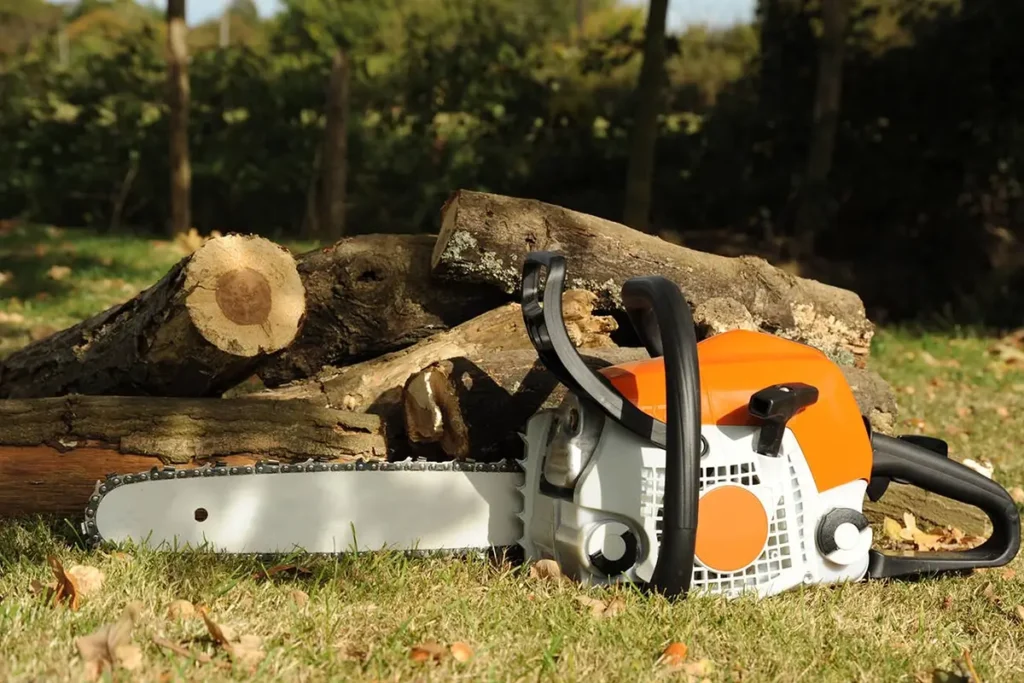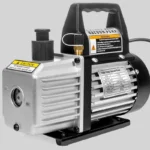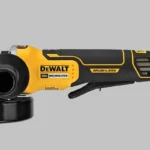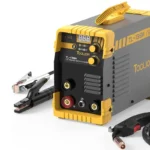Hey there! Thinking about buying a chainsaw? It’s a big decision, and getting the right one can make your tasks a breeze. Whether you’re looking to tackle some overgrown branches or handle more substantial tree-felling jobs, choosing the right chainsaw is crucial.
Let’s discuss everything you need to know before making your purchase.
What Is a Chainsaw?
At its core, a chainsaw is a portable, mechanical saw with a set of teeth attached to a rotating chain that runs along a guide bar. Chainsaws have been around for quite a while, evolving from bulky and cumbersome tools to the versatile, powerful machines we have today. They’re indispensable for a variety of tasks, from pruning trees to cutting firewood and even managing storm damage.
Types of Chainsaws

Chainsaws come in several flavors, each with its own set of perks and quirks. Here’s a quick rundown:
Gas-Powered Chainsaws
These are the heavy hitters. Gas chainsaws are known for their power and efficiency, making them ideal for heavy-duty tasks like felling large trees. They can run for long periods and aren’t tethered to an outlet, giving you plenty of freedom. On the flip side, they’re noisy, require regular maintenance, and can be a bit heavy.
Electric Chainsaws
- Corded Electric Chainsaws: These are great for smaller tasks around the yard. They’re lighter and quieter than gas chainsaws and don’t require as much maintenance. However, you’re limited by the length of your extension cord.
- Battery-Powered Chainsaws: These offer the convenience of an electric chainsaw without the cord. They’re perfect for quick jobs and light pruning. The downside is that they’re not as powerful and the battery life can limit your work time.
Pneumatic Chainsaws
These are less common and typically found in industrial settings. They use compressed air and are incredibly powerful, but unless you’re working on a construction site, you probably won’t need one.
Chainsaw Power Options
Power is a big deal when it comes to chainsaws. Gas chainsaws are measured in cubic centimeters (cc) of engine displacement, while electric ones are rated in volts. Here’s a quick comparison to help you match the power to your needs:
| Task | Gas (cc) | Electric (Volts) |
|---|---|---|
| Light Pruning | 30-35 cc | 18-20V |
| Cutting Firewood | 35-50 cc | 20-40V |
| Felling Large Trees | 50+ cc | 40+V |
Chainsaw Features
Chainsaws come packed with features designed to make your life easier and your work safer. Here are some key ones to consider:
Chain Type: Different chains have different teeth profiles and spacing, affecting their suitability for various tasks. Make sure to choose a chain that matches the type of work you’ll be doing.
Bar Length: The bar length determines the size of the wood you can cut. Here’s a quick guide:
- 12-14 inches: Ideal for light pruning and trimming.
- 16-20 inches: Good for cutting firewood and small trees.
- 20+ inches: Necessary for larger trees and heavy-duty tasks.
Handle Position: Chainsaws typically have either a top handle or a rear handle. Top-handle chainsaws are more compact and great for working in trees, while rear-handle models offer better control for ground-based tasks.
Anti-Vibration Features: These reduce the amount of vibration you feel while using the chainsaw, which can make a big difference in comfort and safety, especially for extended use.
Chain Brake: A vital safety feature that stops the chain almost instantly if kickback occurs. It’s a must-have for any chainsaw.
Automatic Oiling Systems: These systems keep the chain lubricated automatically, reducing wear and tear and making the chainsaw easier to maintain.
Chainsaw Buying Considerations and Cost
When it comes to buying a chainsaw, several factors come into play:
Usage: Are you a homeowner needing a tool for occasional yard work, or a professional looking for a reliable workhorse? Your usage will heavily influence your choice.
Budget: Chainsaws range in price based on their features and power. Here’s a rough idea:
- Basic Electric Models: $50-$150
- Mid-Range Gas Models: $200-$400
- High-End Professional Models: $500+
Brand Reputation and Reviews
Sticking with reputable brands can save you a lot of headaches. Look for brands with good customer reviews and reliable customer service. Sites like ours are great for finding honest, hands-on reviews.
Chainsaw Maintenance and Repair Considerations
Keeping your chainsaw in tip-top shape is essential for longevity and performance. Here are some maintenance tips:
Routine Maintenance:
- Cleaning and Oiling: Regularly clean your chainsaw and keep the chain well-oiled.
- Chain Tension: Check and adjust the chain tension before each use to ensure it’s not too loose or too tight.
- Air Filter Maintenance: For gas-powered models, clean or replace the air filter regularly to keep the engine running smoothly.
Sharpening the Chain: A dull chain can make your work harder and more dangerous. Sharpen your chain regularly or take it to a professional.
Storing the Chainsaw: Store your chainsaw in a dry, clean place. For long-term storage, drain the fuel from gas models to prevent engine issues.
Safety Tips and Best Practices
Safety should always be your top priority when using a chainsaw. Here are some essential tips:
Protective Gear
Always wear appropriate safety gear, including gloves, goggles, and a helmet with a face shield. Ear protection is also important, especially with gas chainsaws.
Operating Techniques
- Starting and Stopping: Follow the manufacturer’s instructions for starting and stopping the chainsaw safely.
- Cutting Techniques: Use proper techniques to avoid kickback and ensure clean cuts. Never cut above shoulder height.
Regular Safety Checks
Before each use, check that all safety features are functioning correctly and that the chain is properly tensioned and lubricated.
Conclusion
Choosing the right chainsaw involves balancing power, features, and budget to meet your specific needs. Take the time to research and understand what each type of chainsaw offers. Happy cutting, and stay safe out there!

Matthew Dowell
Matthew, a seasoned builder from a family of craftsmen, leads Tools Trove. His passion for tools and decades of hands-on experience fuel his commitment to providing expert reviews and insightful content. Whether you’re a pro or a DIY enthusiast, Matthew’s guidance ensures informed decisions in the world of tools.




